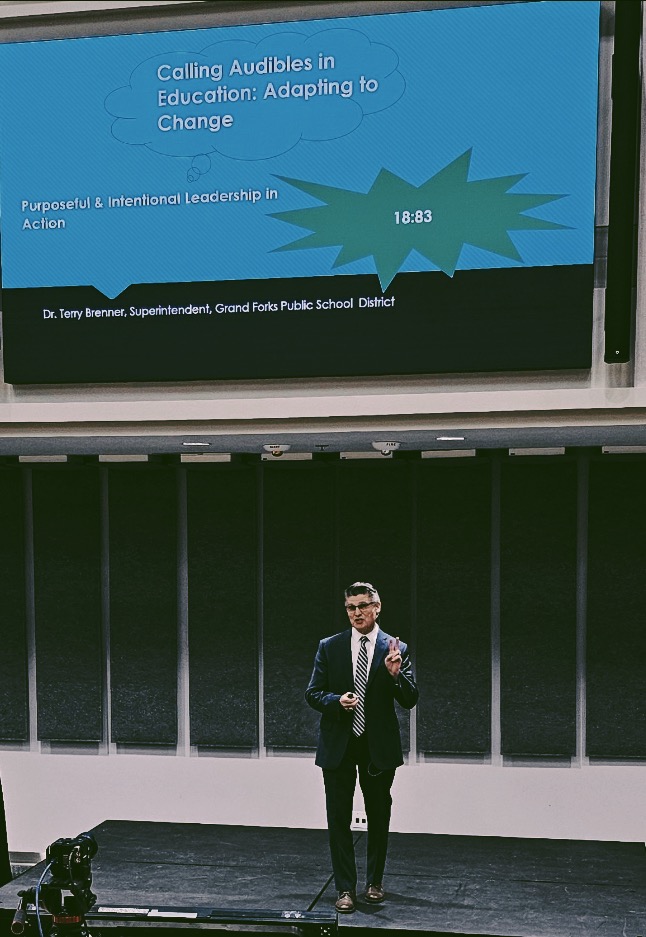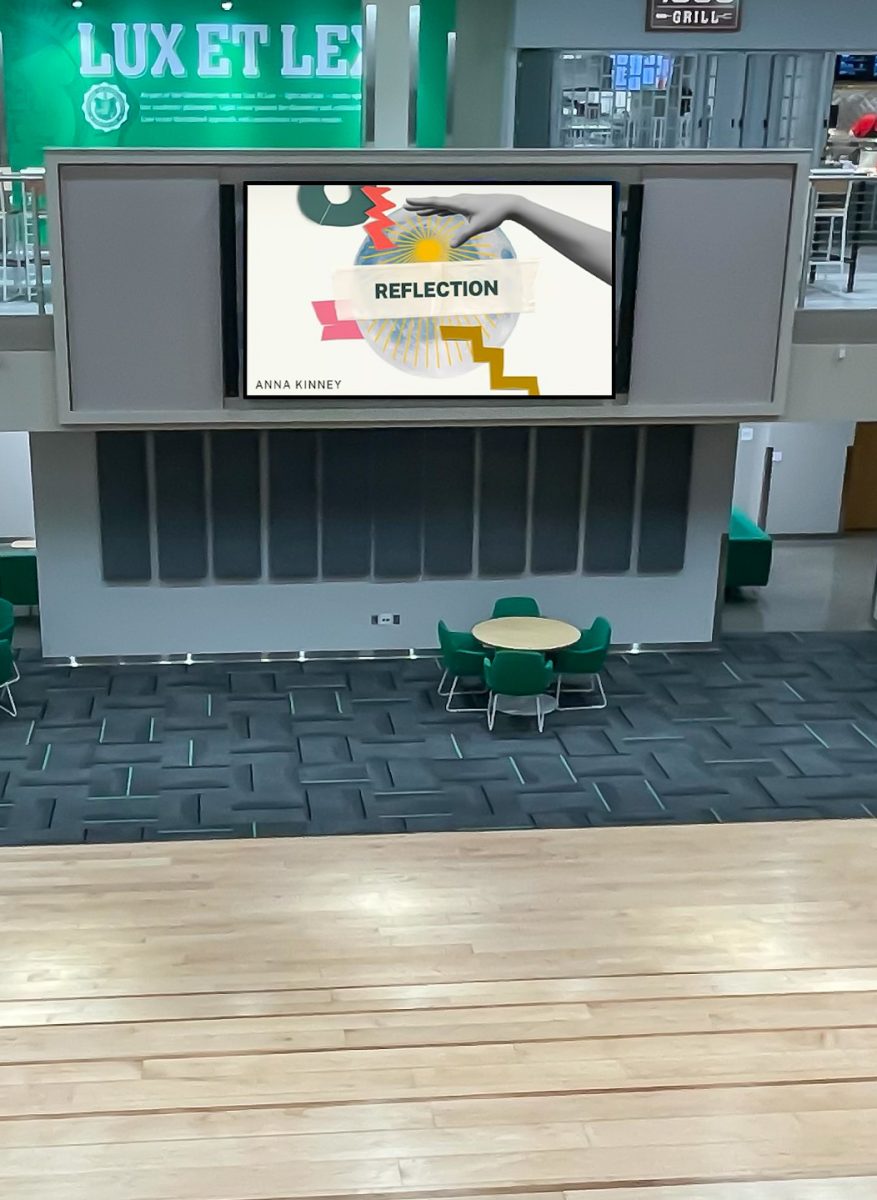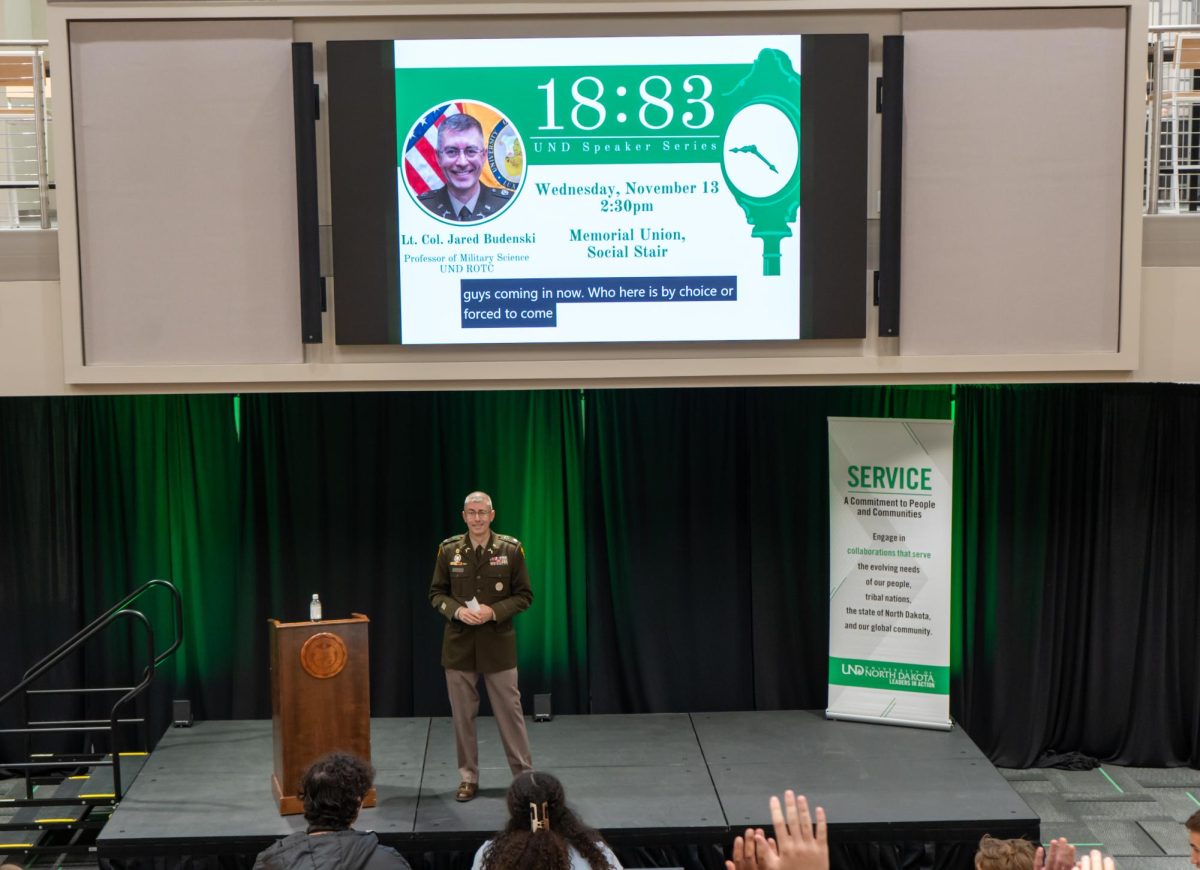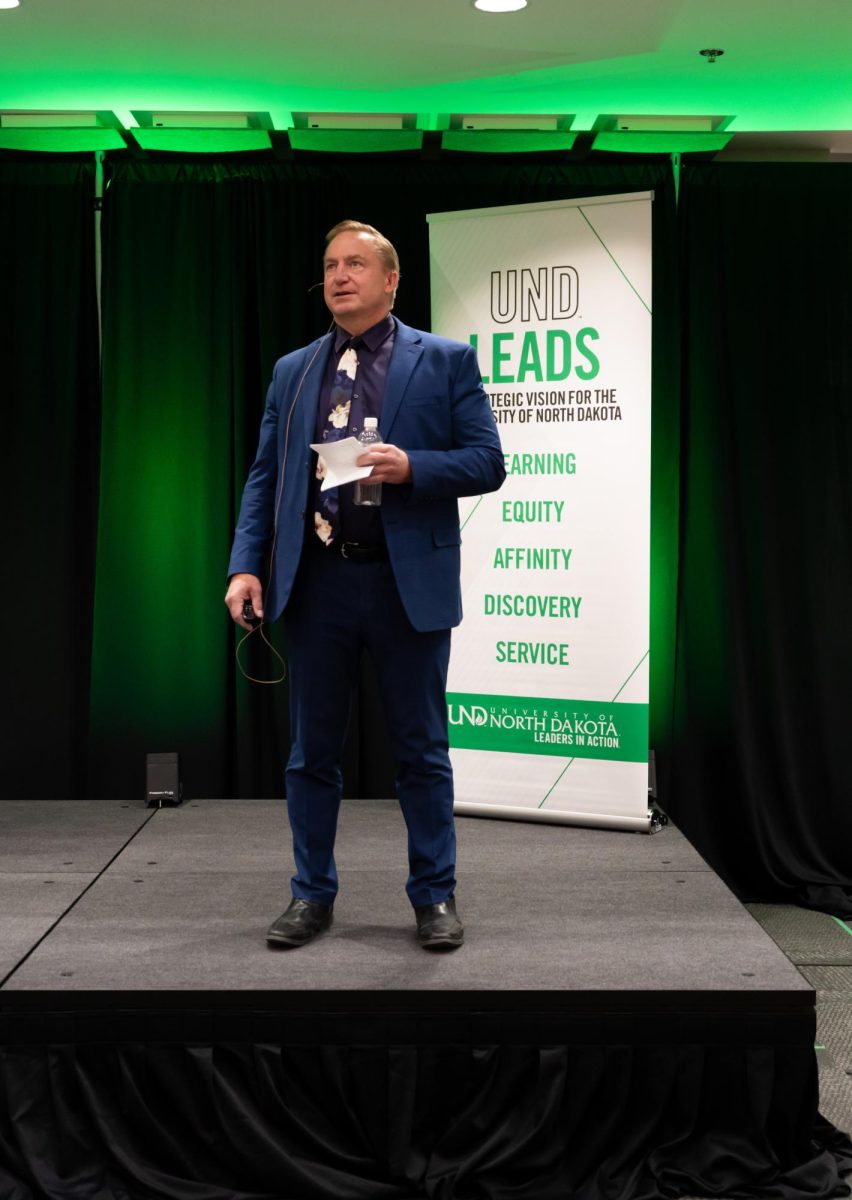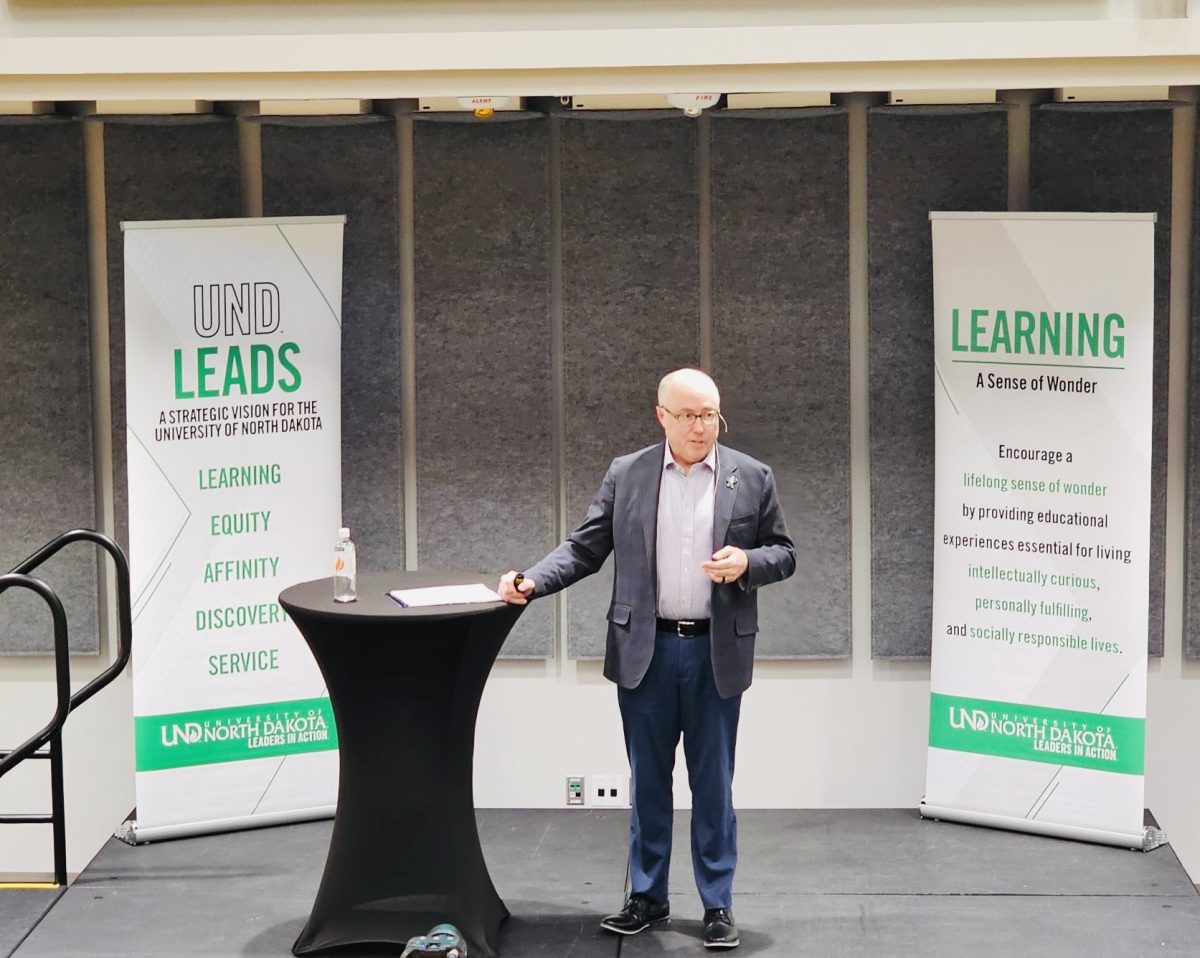Each week on Wednesday afternoons, the University of North Dakota highlights one campus or community leader by allowing them a time slot of 18 minutes and 83 seconds to deliver a “TED Talk” style speech. The title of the 18:83 Speaker Series comes from the year that UND was founded. During their speech, the speaker is expected to share their personal leadership story and how they got to be in the professional position they are in. They can share stories from their life, along with their personal philosophies for leadership and professional success. Each speaker’s story is unique and the advice they pass on can be extremely valuable to students who might be going into similar professions.
The speaker for last week’s 18:83 Speaker Series presentation on Jan. 31 was Dr. Terry Brenner, the Grand Forks Public School District’s Superintendent. As a future educator, I was very interested in what he had to say about leadership in the public school system and to learn a bit about his teaching philosophy.
His speech was titled, “Calling Audibles in Education: Adapting to Change,” and flowed through the different stages of his life and those before him that led him to the career he is currently in. He began the speech by explaining that as a superintendent of a public school district in our current social climate; he must always be prepared to make difficult decisions. He then went on to tell us that he would be breaking his speech up into three different sections that would help guide us to understand his current leadership style. These sections were, his former years, his professional career growth, and his mentors.
He started off the first section, his former years, by talking about his Jewish grandmother who, at sixteen years old, moved to the United States to start a new life. It is there where she had his father who would face his own challenges. Dr. Brenner’s father was deaf at a time when the necessary learning accommodations were not available for those who needed them. Because of this, his father had to attend a school for the deaf that was a twenty-four-minute drive away. He ended up spending extra time in that school and eventually went to a public school and asked them to let him enroll. He was able to enroll and even start playing football, which later got him a four-year scholarship and interest from professional football teams.
Dr. Brenner grew up with a lot of influential people in his life, and in the second part of his speech, he highlighted the teacher that helped him believe that he could be successful in life. He later mentioned the principal who helped guide him as he later became a principal. Before becoming a principal, he started in Special Education and worked with many deaf students since he could understand them deeper, considering that he grew up with a deaf father. He then got a degree in Elementary Education and became one of North Dakota’s youngest principals at age twenty-nine.
Towards the end of his speech, he began to discuss the education and leadership philosophies that inspire him. He made a point that can be applicable to all careers, which is that you should never let a professional decision weigh down your personal life. Meaning that, if you do not feel that a job will be a good fit for you and your life, you should consider going for something else. Sometimes you might not be a good fit for a work environment, or the work environment might not be a good fit for you. He also explained that from a young age, three consecutive years of teaching can be the most influential on a student. Meaning that, if a student has three years of great learning environments, they are more likely to be successful than a student who has had three years of poor learning environments.
Before closing out his speech, he shared the Bolman Deal Four Frames of Leadership concept that he likes to follow when making decisions. These frames include human resources, structural, political, and symbolic. Human resources are the people in your work environment and how they work together. Structural is the goals and strategies you use. Political is negotiation and advocation. Finally, symbolic is the culture and meaning behind what you do.
It is clear that Dr. Terry Brenner is passionate about what he does and that the reason behind that is because of the people that helped guide him to get to the position he is in. There is a lot that we as students can learn from leaders like Dr. Brenner, and the 18:83 Speaker Series is an excellent resource for students to gain a lot of knowledge from a short an engaging speech. If you are available on Wednesdays at 2:30 p.m., you should consider stopping over at the Memorial Union to take advantage of this opportunity.
Nora Lee is a Dakota Student General Reporter. She can be reached at [email protected].


